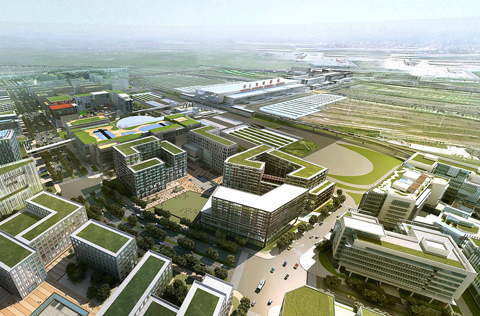Home>News
NBAA president: China has vision, commitment to boost aviation
China has become a leader with vision in the aviation sector, a senior official with the US National Business Aviation Association has said.
"China is a great market no one can miss. More importantly, it is playing a role on the global stage, setting an example and offering opportunities worldwide," NBAA President and CEO Ed Bolen told Xinhua in an exclusive interview ahead of the 2019 Asian Business Aviation Conference and Exhibition.
The exhibition, a predominant annual business aviation event in Asia, was held from April 16 to 18 at Shanghai Hongqiao International Airport.
China has seen significant growth in aviation infrastructure, professional management and regulation, Bolen said.
"They are all important to the Chinese story of the aviation industry," he said. "China is a country that creates expectations and inspiration."
After more than 30 years working in the aviation sector, he has seen the "China commitment and China speed".
During his first trip to Shanghai in 1993, local authorities told him that they were planning an international airport with a high-speed rail link to the city center. In 2003, it was "all done".
Aviation infrastructure has grown significantly in the country. At the end of 2018, China had 235 civil airports. Under the government's 13th Five-Year Plan (2016-20), the figure is expected to reach 260 by 2020.
Beijing is currently building its second airport, Beijing Daxing International Airport, to embrace the growing influx of passengers and goods.
"China has the vision and commitment to boost aviation. It makes the commitments and future real. That's quite exciting to me and industry insiders worldwide," said Bolen. "Especially in the business aviation sector, we need to share experiences and meet challenges together."
Corporate jets landed in the Chinese mainland market in the mid-1990s and business aviation saw double-digit expansion every year until 2014.
"Like each industry, there is always an economic cycle. We ought to work together to allow business aviation to thrive," Bolen said.
Business aviation helps to spur economic development and create jobs by "bringing people and business closer in incomparable speed", said Bolen.
China's economy is continuously growing and Chinese enterprises have closer ties with the world. Business aviation is a better way to facilitate cooperation and competition, even in tough markets, he said.
All the world's major business aircraft manufacturers attended ABACE with their flagship aircraft. Service providers in fields such as leasing, maintenance and professional training were also present.
The NBAA tried at the ABACE to bring industry leaders and professionals together to share experiences and absorb China's experience in developing its aviation industry.
"We expect the Chinese aviation industry to grow with its own characteristics. That will make the global aviation industry more diversified and be good for mutual learning and better cooperation," Bolen said.
For example, aviation training is a challenge for all countries, and safety is a common focus. With a surging aircraft fleet and professional team, China has an acknowledged safety record in civil aviation, he said.
The country's civil aviation industry had 100 months and 68.35 million hours of sustained safe flight as of the end of 2018, according to the Civil Aviation Administration of China.
China is the world's second largest civil aviation market and is expected to become the largest in mid-2020, according to the International Air Transport Association.
"The world is expected to learn how China tackles challenges and makes things happen in its way," Bolen said.


